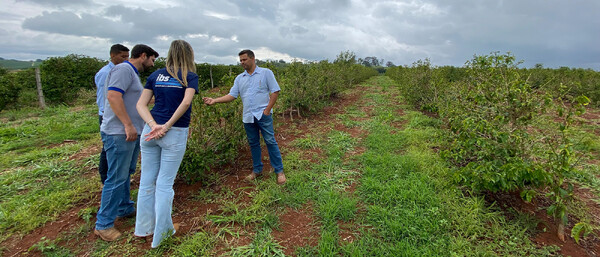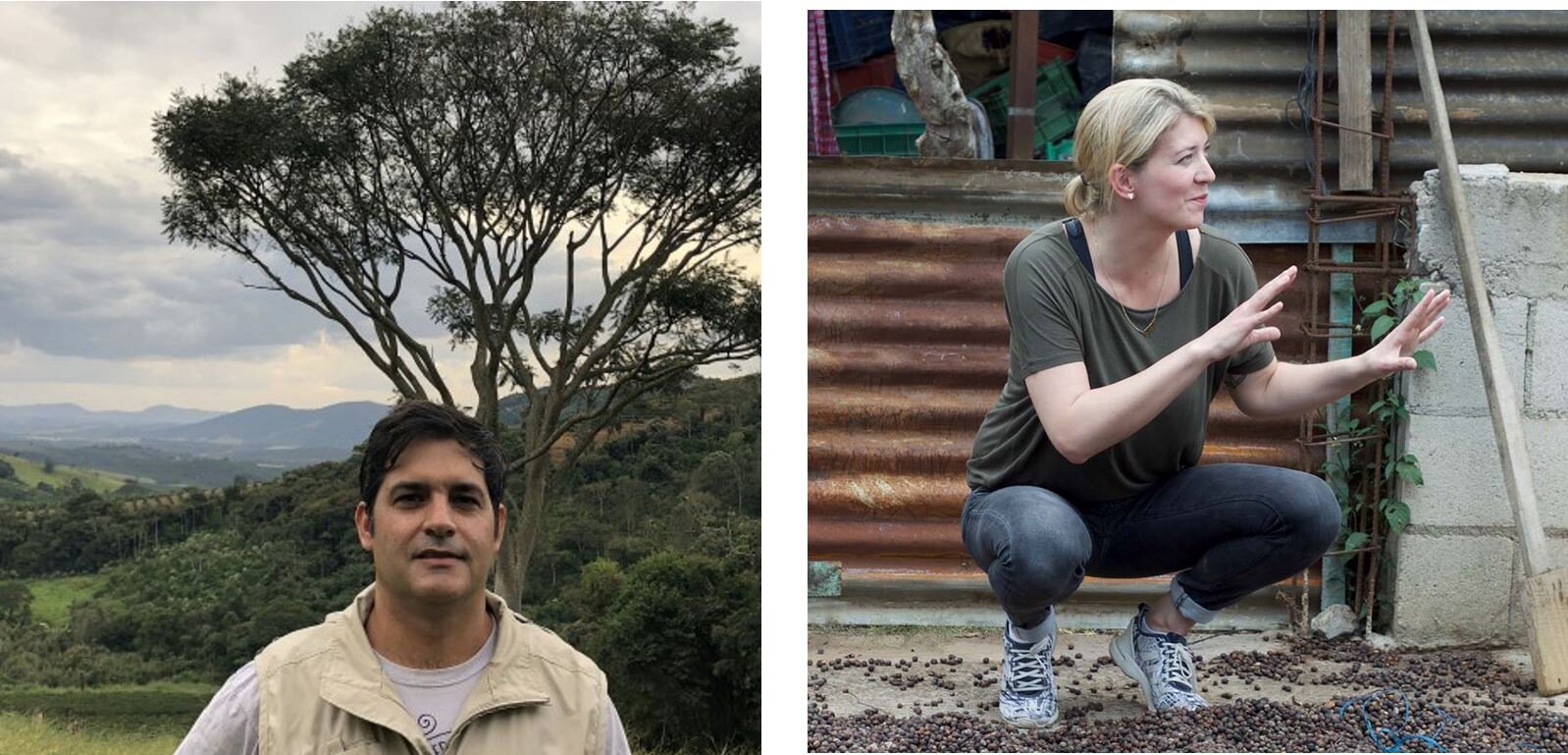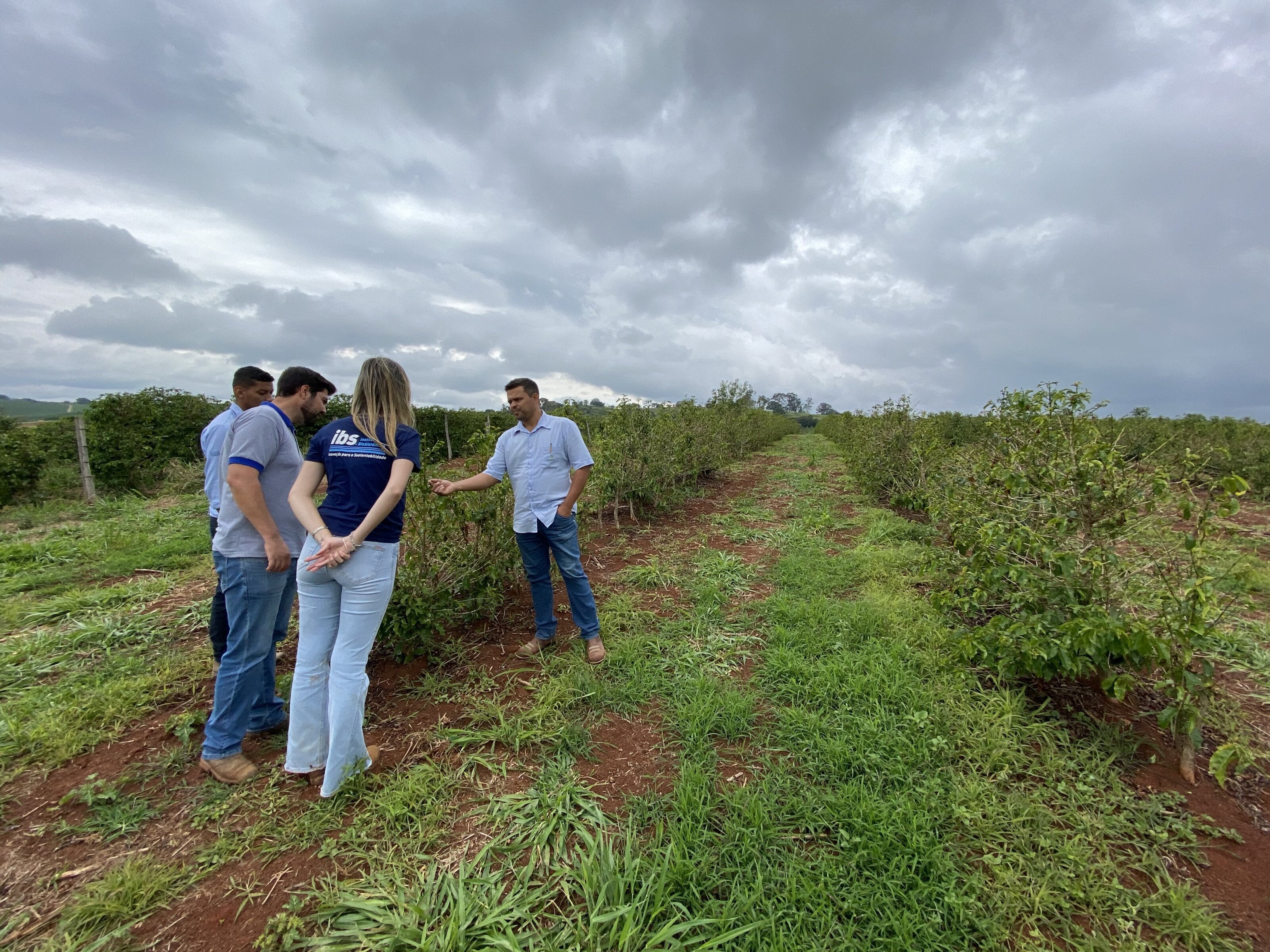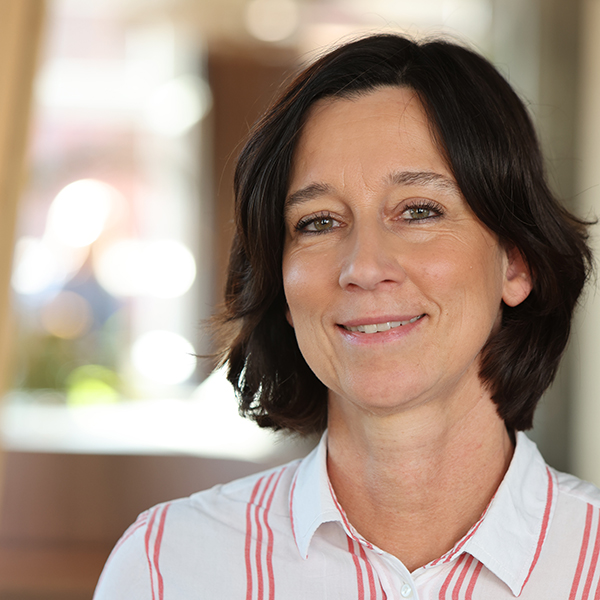
The Tchibo coffee country programm (2)
The project "Paisagens Sustentáveis"
Brazil is one of the most relevant countries for the coffee industry. However, farmers are facing major challenges, as both climate change and environmental damage caused by conventional coffee cultivation are having a major impact.
In our growing regions in Sul de Minas, Minas Gerais / Mogiana Paulista and São Paulo, the changed climate conditions are having a major impact. Heavy rainfall, recurring heat waves and hail lead to flooding, erosion and a reduction in production, as the coffee plant is extremely sensitive. Water and soil can also be contaminated by agricultural chemicals.
Our approach: transfer proven organic farming methods to conventional agriculture. This works best in learning communities in which practical examples of application are demonstrated. If neighbouring farms are successful with innovative approaches, for example, other farmers will want to follow suit. This is why we have set up learning communities for farmers together with local partner organisations, cooperatives, exporters and our representative Cassio Franco Moreira.
In concrete terms, this means that we are identifying previously dried-up springs, surveying areas and planting native vegetation on the riverbanks to bring the water back. We are also testing measures to reduce the use of artificial pesticides on pilot farms. Participants in the project learn about alternative options, how they work and the costs involved. We also offer training courses on adapting to climate change. By exchanging ideas in these learning communities, the farmers improve environmental protection together.

Cooperation along the supply chain
In order to successfully implement the project and positively change the coffee cultivation of an entire region, everyone involved along the supply chain is needed. This includes our local buyers, exporters, the IBS, our representative Cassio Franco Moreira and our colleague Reena Eddiks, Sustainability Manager for Coffee and Country Manager for Brazil. We work with two cooperatives, Coomap and Coopfam, some of whose coffees are certified with the organic label and Fairtrade. These co-operatives supply coffee for our barista products, for example. In addition, our suppliers are Exp. Guaxupé and Olam Food Ingredients (OFI) are also part of the project. These two coffee exporters supply conventional coffees, for example for our Feine Milde.

Unique features of Paisagens Sustentáveis
"The mutual trust between the partners is unique. From day one, we sat down at the table together and defined all activities and goals together; in other words, we were completely co-creative. If even one partner had doubts, they always had the right of veto. This meant that the process took a little longer, but we were able to achieve a high level of commitment from everyone involved - from the certified cooperative, which is already very sustainable, to the producer, who generates profits primarily through volume. Only with this co-creative approach can we also develop and promote sustainability outside the world of premium coffee."

Successes and outlook
Cassio Franco Moreira, our local Tchibo representative, who is also a coffee farmer and owner of an organic-certified farm in the highlands of Sul de Minas, is confident that the Paisagens Sustentáveis project is on the right track: "It has shown that change can be brought about in the Sul de Minas region, the world's most important region for the cultivation of Arabica coffee."
We are delighted that the team in Brazil is working so well together - and that the team is constantly growing. For example, the Dutch Rabobank Foundation is supporting our project financially and we are working more closely with the Brazilian government. Another partner is the Universidade Federal de Lavras (in the form of the Instituto Federal do Sul de Minas Gerais). We clarify all important issues together, such as defining objectives, identifying training content, selecting locations for new seedlings and launching pilot projects.
Another success is the networking of around 260 smallholder farmers through the learning communities. These provide an environment in which everyone can benefit from the experience of others. The farmers support each other, whether through practical help or the exchange of technical equipment. By 2025, we aim to reach a total of 1,600 farms with our project.
The need to adapt coffee to climate change and reduce the use of pesticides is certainly also an opportunity. There is great pressure on farmers to accept changes and consider them sensible. At the same time, they are achieving economic and technical success.
The Coffee-Country-Programme in Brazil in brief:
- Brazil is one of the most relevant countries for the coffee industry in the world
- Sul de Minas is the world's most important region for the cultivation of Arabica coffee
- Problems: Environmental impact of coffee cultivation and climate change
- Our approach: Transferring proven organic farming methods to conventional farms
- Cooperation & exchange through learning communities and partnerships with local organisations and coffee exporters
- First phase goal: Change coffee cultivation sustainably with 1600 farmers
- Long-term goal: Build an infrastructure that enables producers to make their coffee cultivation more environmentally friendly
